Is it possible that "Virtues and Religions" will be included in the curriculum and will be mandatory from 2026? This is a debate that has seen different points of view expressed in the last few weeks. "The introduction of mandatory classes on religions in Bulgarian schools is justified and is what most Bulgarians want," say the Bulgarian Teachers' Union at CITUB, which includes a large part of the professional community. They insist on a public debate on the topic, which is why it was included in the discussions at a specialized forum this week, alongside other leading topics, such as teacher salaries and reforms in secondary education. At the meeting with teachers, the Minister of Education and Science, Krasimir Valchev, said that the topic had already been put on the table and that the introduction of such a subject in Bulgarian schools is underway.
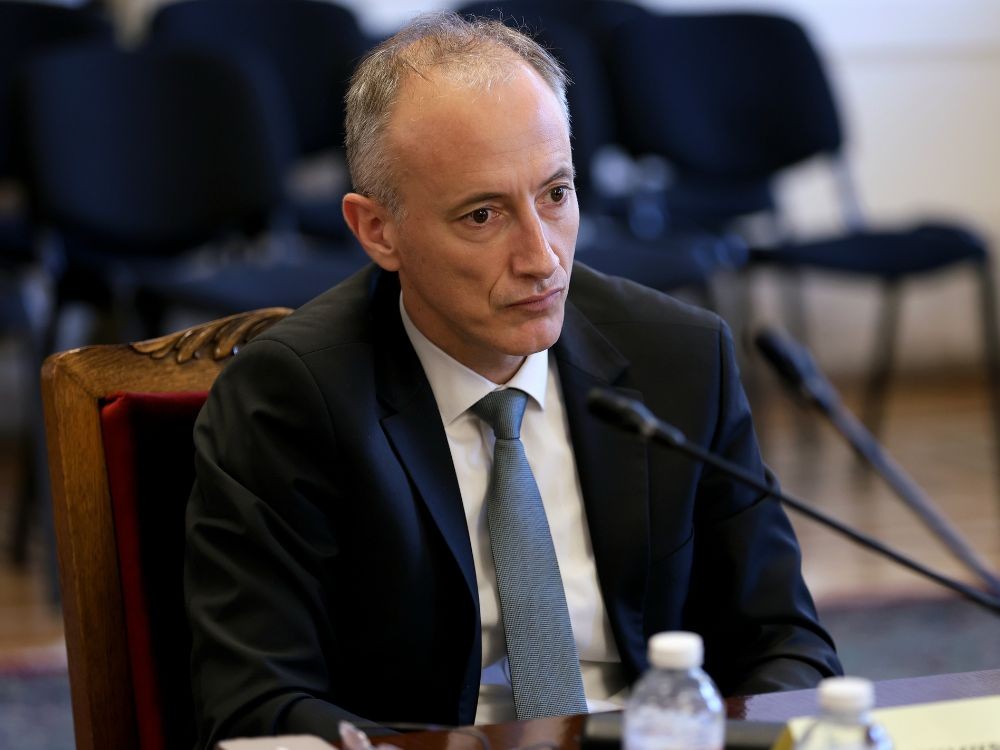
Currently, religion is present in educational curricula, but is optional. According to a sociological survey by Trend Agency, 57% of Bulgarians surveyed approve of the introduction of classes on religion in Bulgarian schools. The same survey makes it clear that for Bulgarian students the highest value at the moment is the material well-being of their families. For some analysts, this is a symptomatic signal that spiritual education is imperative.
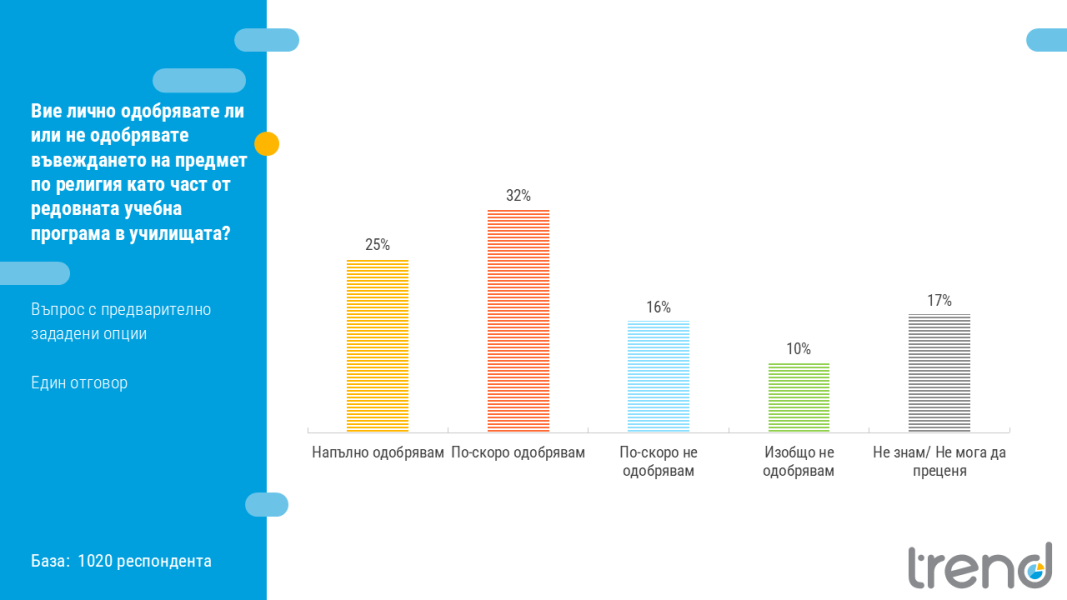
The educational programs that the Ministry of Education is preparing will have different modules. The goal is for students and parents to have options when choosing the content and focus of the proposed subject to be studied. The proposal is to call it "Virtues and Religions" and to provide an opportunity to choose a confessional focus in education /closer to the majority of Orthodox Christians in Bulgaria/. There will also be a program that is non-denominational and is related to the history of religions and information about the communities that are known in Bulgaria and that we all encounter. The new idea is that, in addition to these programs on religion, students can also choose a program on ethics and virtues, within the framework of this same subject. Students who do not want a religious profile can choose the third option, which provides guidance towards mastering virtues, but in a completely philosophical reading.
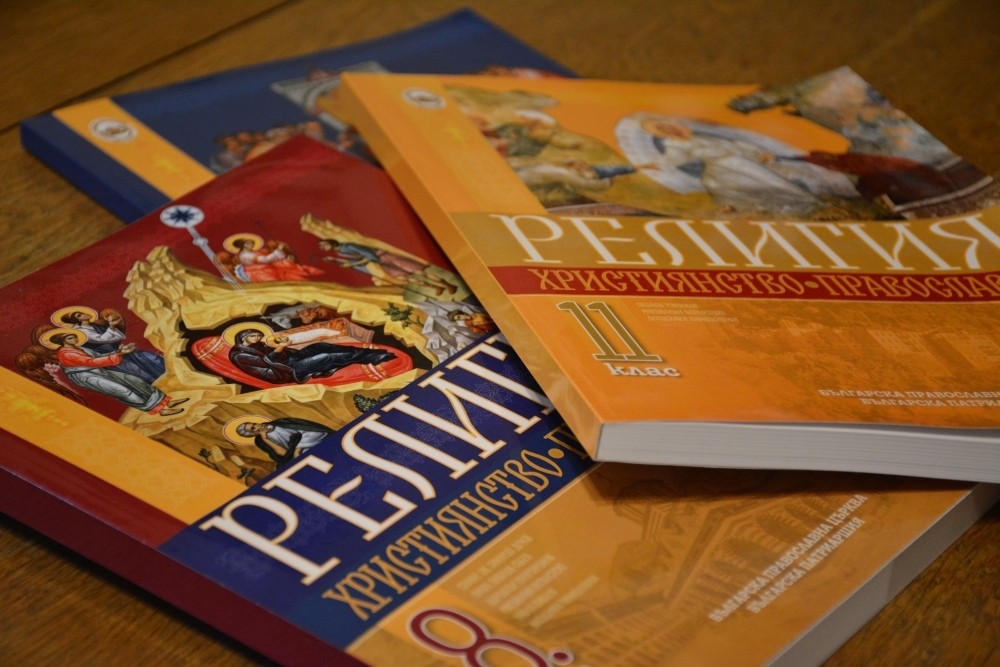
Despite the variety of options that are being discussed in the Ministry of Education, there are people who say that such a mandatory subject could have the opposite effect, mainly because these classes could lack dialogue and children will have to learn religious doctrines at school. "There is no connection between the religious affiliation of the parents or the child and the child’s tendency to show more altruistic behaviour, to help someone, to show empathy," Dr. Zhenya Lazarova, a psychologist and neuroscientist, told the Bulgarian National Radio.
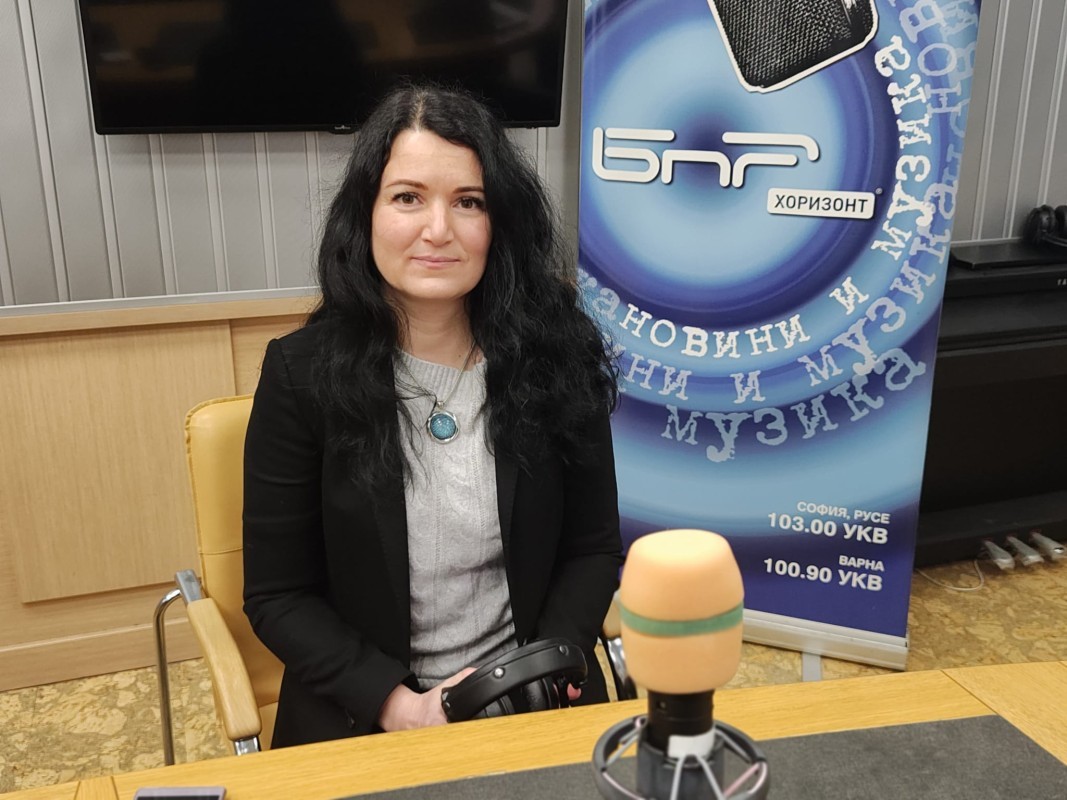
"It is not a problem for teachers and monks to talk, but this current trend - the Bulgarian Orthodox Church determining educational policies is a bit risky, according to me. No need to mention that it threatens the secular nature of our education and unfortunately is not based on any real scientific data on the benefits of religious education," the scientist says.
"The concerns are unfounded, as the Bulgarian school will educate our children in terms of religions in such a way that they know about them and will not be forced to follow any religion. The goal is rather for them to know about certain religious, moral values, as well as what the role of religion in the formation of our statehood and culture is," says Desislava Panayotova, expert "Programs and Projects" in the Cultural and Educational Department of the Holy Synod of the Bulgarian Orthodox Church:
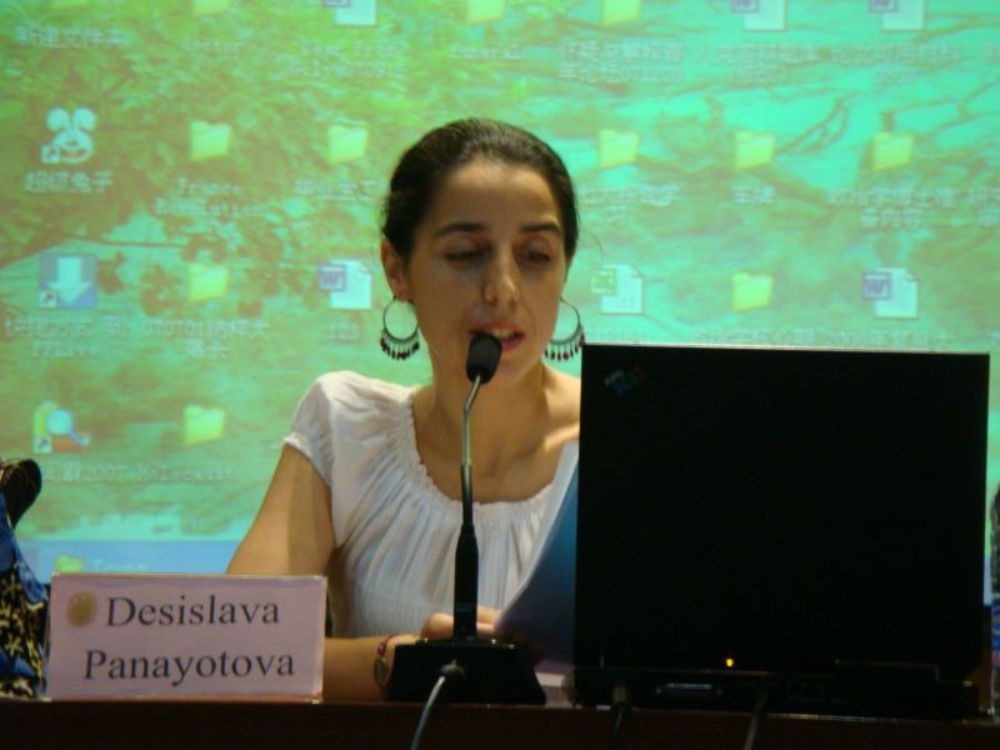
"We will be happy when the changes in the Pre-School and School Education Act become a fact and when it is seen that Bulgarian society has actually reached a consensus that children need virtuous upbringing in school and when the majority of Bulgarian children who belong to the Orthodox faith have the opportunity to receive in-depth training related to church history, the contribution of the Bulgarian Orthodox Church to our national and cultural identity and the foundations of the Orthodox teaching about man, the world, virtue and the meaning of life. The idea is that within the subject Religion or Virtues and Religions, regardless of what its final name will be, there should be an opportunity for confessional varieties, one of which should be Orthodox Christianity and others that would satisfy the needs of all Bulgarian citizens, parents and students."
Publication in English: Al.Markov
Photos: Holy Synod of the Bulgarian Orthodox Church, Trend Agency, BT, Irina Nedev, bg-patriarshia.bg
On November 8 in Hall 11 of the National Palace of Culture, Bulgaria’s best masters and artisans will be awarded for the third time. The founder and driving force behind the “Creator of the Year” initiative is Nikolay Traykov, who visited “Radio..
Sofia has a new spot for curious minds. Phenomena is a museum where science and art come together — a place to experiment, discover, and get hands-on with the wonders of how the world works. Rooted in the spirit of STEAM education — that’s Science,..
‘In my view, the period between Bulgaria’s liberation and 1944 was especially significant because I believe that the country was then on the right developmental path,’ says collector Filip Milanov. ‘That era produced many people of exceptional integrity..
On November 8 in Hall 11 of the National Palace of Culture, Bulgaria’s best masters and artisans will be awarded for the third time. The founder and..
Fertility Europe , the pan-European organization that represents patient associations focused on infertility issues, has announced the start of the 9..
Today, in the Radio Bulgaria studio, we welcomed Helmut Matt – a writer, radio journalist and poet, who has maintained a special connection with Bulgaria..

+359 2 9336 661
